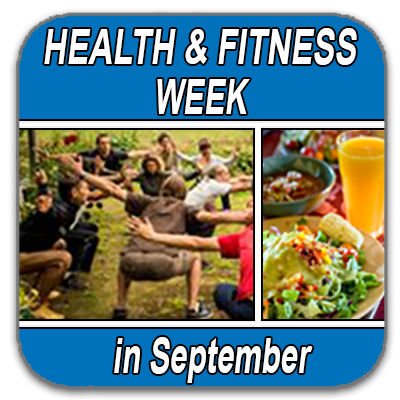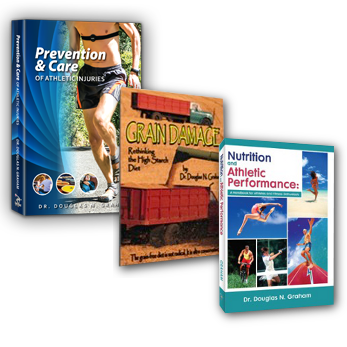Progress is Progress : 3 Tips to Deal with Training Plateaus
by Dr. Graham
Published: Fri, 15 May 2015

Progress Is Progress, Even When It Is Ever So Gradual
A common problem many people face with their fitness training is dealing with and overcoming the plateau effect. When you are on a plateau, seemingly unable to make progress, training can become quite frustrating. Most people find that having a sense of progress is one of the best parts of fitness training. In this short piece, I’d like to offer a few strategies for turning plateaus into progress.

Balancing on slackline
at Health & Fitness Week
1. Look For Tiny Increments of Progress
When running, perhaps your mile times aren’t getting any faster. You know you need faster mile times in order to run a faster 10K. You might demonstrate that you can run your miles at the same speed as usual, but with shorter rest breaks between each mile. Even a few seconds less rest counts as progress. Or, instead of running four miles with breaks between each mile, you can run five, and still keep the pace. Or if you are running your fastest for a mile, maybe you can run at that same speed for 1.1 miles, or 1.2 miles. Eventually, if you keep pushing, you will have a break through. If you are weight lifting, you can perhaps squeeze out one more rep than usual, even though you are not yet ready to move on to heavier weights. Even doing a partial last rep is progress, compared to not doing that partial rep at all. Or you can use “micro” weights. Some people make tiny weights by tying coins or stones inside of socks, and hanging one micro weight on each end of the bar. The micro weights could be as little as 1/8 or 1/4-pound each. If you can lift your usual weight plus the micro weights for the same number of reps as you could without the micros, you’ve made progress. Soon enough, you’ll be adding a full pound to each end of the bar…2. Increase Your Recovery Time
The idea in fitness that more is better does not really hold water.
I want to be able to train harder, and smarter, than my competition, and I want to be able to practice and perform prolifically. A huge part of training lies in recovering. Getting enough sleep, eating carbohydrates immediately after exercising, providing sufficient rest in between training sessions, and staying hydrated are all integral to good recovery, and a big part of smart training. Often enough, people aren’t making progress because they simply are not taking enough time for recovery. Performance stagnates, and motivation lags when this happens. Sometimes, the best way to make progress is to take a day off from training, or even two days or more, and then come back with renewed enthusiasm. If your performance is better than it was before the time off, you will know that you were overtraining, and hopefully will be alert enough to notice the symptoms sooner in the future.

L-sit in classwith Dr. Graham
3. Train With Partners
Many people tell me that they love their personal trainer specifically because the trainer gets them to do things that they otherwise wouldn’t do. The same is true for training with friends; you will often do things for them that you wouldn’t do for yourself if you were training alone. People often tell me that they can’t get themselves to lift as heavy, or do cardio as intensely, when they are alone as they will when with others. Whether we train harder for recognition, to avoid embarrassment, or simply not to let your partners down, doesn’t really mater. What matters is that your friends can often coax you off of your plateau and into the world of PBs (personal bests) when you can’t seem to do so on your own. You just need the push that only friends can provide.Progress is built into the very nature of fitness training. Expect progress, and push for progress. Once you make your break through, start planning on more progress. Do the work, earn the progress, and the exhilaration of yet another PB will be yours, soon enough.
Additional Resources
Articles:
- Fitness: Simple Answers to Common Questions by Dr. Graham
- A Can of Progress by Dr. Graham
- Getting Optimal Results by Dr. Graham
- Raw Vegan Fitness with Dr. Graham by Dr. Graham
- Getting Started: Putting Your Inertia To Work by Dr. Graham
- Deadlifting Instructional Video by Dr. Graham
- Deadlifting Basics: The Proper Stance by Dr. Graham
- More Fitness Articles
Retreats:

|

|
Self-Study Materials:
|
3 Book Combo 
|
Membership 
|
How To Live 80/10/10 
|
